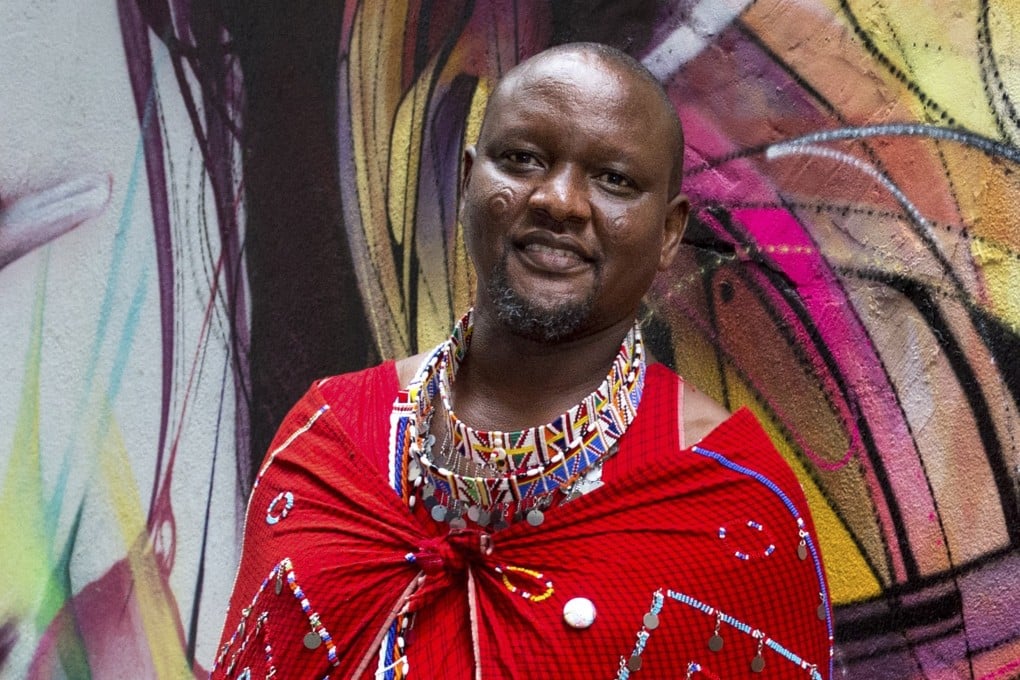Maasai warrior hopes to see end to Chinese obsession with rhino horn, ivory
Daniel Ole Sambu, a conservationist from the Big Life Foundation, talks about the impact of the Chinese demand for wildlife products, and why his Kenyan culture is turning its back on the teenage tradition of lion-killing

A polygamist’s son I was born in southern Kenya, in 1974, to a pastoralist family. We kept cows, sheep and goats. My father is a polygamist. He has five wives – my mother was the first. Growing up, there were always lots of children to play with. I have so many siblings I can’t tell you how many I have now. Each of the wives had her own house, but the children were free to live in whichever house they wanted. As the wife of a polygamous husband, you must be prepared to take care of the children of other wives.
Growing up in rural Kenya, school wasn’t seen as a priority. People couldn’t understand why you might want to go to school, but I was lucky – my mother wanted to see me go to school. It wasn’t an easy thing to do. It’s not a privileged community as you have here in Hong Kong. The only way to pay the school fees was to sell cows or sheep. There was no other source of income.
The long road to school It took me two to three hours to walk the 10km to school. I had to wake up very early to get there in time. And I had to walk quickly to and from school because this was an area with plenty of wildlife – elephants, lions, zebras, giraffes – you had to keep your eyes open. When you are young, you are fearful, until you become used to them. I soon learned which animals were dangerous. I had some classmates who were injured by wild animals, others killed. Now I’m not afraid. I can walk anywhere. I didn’t go to university. After my O-Levels, I got a certificate in human resources.

After school, I wasn’t in any permanent employment until I got an opportunity to work with a member of parliament (in Kenya) – that’s where I got the skills of talking to people. I worked there for five years. In 2009, I was approached by a non-profit conservation organisation, the Big Life Foundation. They were looking for someone who is respected to talk to the community about the human-wildlife conflict in the area. Although I’m not that old, I’m seen as an “elder”. They understand me, I understand them. We are trying to protect wildlife outside the protected areas while the government is focused on the protected areas.
Conflict resolution The area where I live and work is called the Amboseli ecosystem. It is open land between four national parks in Kajiado county (southern Kenya). The conservation areas are not fenced, so you have wildlife moving out of the parks into the community. This leads to conflict – we have predators killing livestock, elephants moving into agricultural areas, sometimes they kill humans.
